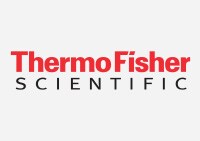Search Thermo Fisher Scientific

Silylation Reagents
Solutions of various chemical compositions formulated for use in mass spectrometric compound analyses via the process of silylation. Multiple reagent quantities are available.
Products (14)
Learn More (5)
Documents & Support
(21)14 Products
Filter
Use Thermo Scientific™ BSTFA + 1–10% TMCS Silylation Reagent for analytes that are difficult to silylate. Stronger than BSTFA alone, this catalyzed formulation is ideal for derivatizing compounds such as fatty acid amides and slightly hindered hydroxyls for GC analysis.
Use Thermo Scientific™ MSTFA and MSTFA + 1% TMCS Silylation Reagent for GC analyses of early eluting compounds that would otherwise be obscured in the chromatogram. MSTFA, the most volatile TMS-amide available, and its byproduct N-methyltrifluoroacetamide typically elute with the solvent front,...
Catalyze the derivatization of difficult-to-silylate compounds using Thermo Scientific™ TMCS Silylation Reagent. It is an excellent adjunct for forming TMS ethers for GC determinations. TMCS is also useful for preparing TMS derivatives of organic acids.
Derivatize hydroxyls compounds, particularly carbohydrates with Thermo Scientific™ Tri-Sil TP (TMSI:Pyridine) Reagent. Comprising TMSI in pyridine, this reagent silylates alcohols and phenols, organic acids, hydroxylamines, amino acids, carbohydrates, flavonoids, glycols and polyglycols,...
Improve GC analysis with Thermo Scientific™ BSTFA Silylation Reagent. The highly volatile byproducts mono(trimethylsilyl)trifluoroacetamide (BSTFA) and trifluoroacetamide elute with the solvent front to ensure excellent chromatographic separations.
Thermo Scientific™ HMDS (Hexamethyldisilazane) greatly extends the practical range of GC, improving chromatographic results in the silylation of sugars and related substances.
Derivatize analytes quickly and quantitatively under mild conditions using Thermo Scientific™ BSA Silylation Reagent. This reagent reacts readily with a wide range of compounds, including alcohols, amines, carboxylic acids, phenols, steroids, biogenic amines, and alkaloids to form volatile, stable...
Employ a reagent-catalyst solvent mixture, for one-step derivatization with the Thermo Scientific™ Tri-Sil HTP (HDMS:TMCS:Pyridine) Reagent, Composed of HMDS, TMCS and high-purity pyridine, it rapidly produces TMS derivatives of polar compounds for GC analysis and biochemical synthesis.
Produce stable TBDMS derivatives for GC analysis with the Thermo Scientific™ MTBSTFA and MTBSTFA + 1% TBDMCS Silylation Reagent. MTBSTFA derivatizes hydroxyl, carboxyl, thiol and primary and secondary amines with typically >96% yields, and the reaction byproducts are volatile and neutral.
Employ the strongest silylator available for carbohydrates and steroids with the Thermo Scientific™ TMSI Silylation Reagent. This silylation reagent reacts quickly with hydroxyls and carboxylic acids but not with amines, and is particularly well suited in multiderivatization schemes for compounds...
Prepare oximes of steroids and ketoacids prior to silylation with the Thermo Scientific™ Methoxamine (MOX) Reagent. It prevents the formation of multiple derivatives when enols are present during silylation, thereby ensuring optimal quantitation.
Thermo Scientific™ Pierce APTS (3-aminopropyltriethoxysilane) is a silylation reagent for coating glass and silica surfaces to add primary amines, which can be used to crosslink and immobilize proteins and other molecules.
Employ a reagent-solvent mixture, for one-step derivatization with the Thermo Scientific™ Tri-Sil BP (BSA:Pyridine) Reagent, Composed of BSA and high-purity pyridine, this silylation reagent formulation derivatizes alcohols, phenols, organic acids, aromatic amides, and amines for GC analysis.
Employ a catalyzed silylation reagent formulation, for derivatization of hydroxyls with the Thermo Scientific™ Tri-Sil TBT (TMSI:BSA:TMCS) Reagent. Composed of TMSI/BSA/TMCS (3:3:2), this catalyzed silylation reagent formulation typically reacts with hydroxyls in a short period of time at 60–80 °C...
Learn More (5)
View all
Improve separation and detectability of a compound destined for GC or GC-MS analysis using this selection of derivatization reagents. We also offer siliconizing fluids to coat various lab consumables with an inert, water-repellent film.
Explore a variety of instruments and consumables that can be used with the TRACE 1600 Series Gas Chromatograph to enhance your GC analyses and optimize your GC system for your laboratory's workflows., Whether you need a simple liquid or headspace GC autosampler or one that can do it all (liquid,...
Documents & Support (21)
View all
Brochure: Reagents, Solvents and Accessories









